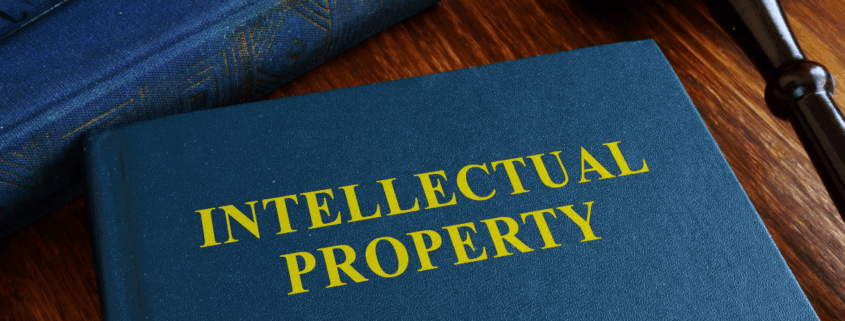The Intersection of Elder Law and Intellectual Property: Protecting Senior Inventors and Artists
As we age, the idea of slowing down often takes hold, yet many West Virginians are doing the exact opposite—they are innovating, creating, and inventing later in life. Whether it’s an artist refining their craft, a retired engineer developing a new patent, or an author finally writing their memoir, seniors are building legacies that extend far beyond their financial accounts and real estate holdings. However, while most people have a plan for their physical and financial assets, a plan for their creative and intellectual property is often overlooked.
For the legal system, this intersection of elder law and intellectual property is a modern frontier. It demands careful and forward-thinking legal strategies to ensure a lifetime of creativity and ingenuity is protected, managed, and passed on to loved ones, not lost or exploited.
What Is Intellectual Property, and Why Is It Important to Elders?
Intellectual property (IP) is a broad term for creations of the mind. It is a class of assets, just like a home or a bank account, but it is intangible. For a senior, these assets might represent the culmination of a life’s work.
- Patents: These protect inventions. A patent holder has the exclusive right to use, sell, and make their invention for a specific period, usually 20 years.
- Copyrights: These protect original works of authorship, such as books, paintings, music, and software. Copyrights give the creator control over how their work is copied, performed, or distributed.
- Trademarks: These protect brand names, logos, and slogans used to identify and distinguish goods and services.
While it is clear why someone would want to protect these, it is particularly vital for seniors for several reasons:
- Asset Value: IP can be an incredibly valuable asset that can be sold, licensed, or used as a revenue stream to support long-term care needs.
- Legacy: For many, passing on their creative work or invention is as meaningful as passing on family heirlooms. It is a way to share their talent and ingenuity with future generations.
- Vulnerability: Unfortunately, seniors can be targets for exploitation. Without a proper legal framework, their creative works can be stolen, their intellectual property rights infringed upon, or they can be pressured into giving away the rights to their work.
How Do Elder Law and Intellectual Property Law Intersect?
Elder law is a practice area focused on the legal needs of senior citizens, from estate planning to long-term care. While it traditionally deals with tangible assets, the modern legal landscape requires it to evolve. The following are a few ways these two areas of law converge.
Estate and Legacy Planning for Intangible Assets
A standard will or trust may not be enough to properly manage intellectual property. If a will simply states that a person’s “property” should be distributed to their heirs, it can create a host of problems for intangible assets.
- Lack of Specificity: A will may not grant an executor the specific authority to manage or license copyrights, patents, or trademarks, which often requires technical and legal knowledge.
- Valuation Challenges: How do you appraise a patent, an unfinished book manuscript, or a collection of digital photographs for tax and distribution purposes? This requires a specialized skill set.
- Probate and Access: Accessing digital accounts or online platforms where IP is stored can be a problem without a specific plan.
A tailored estate plan for intellectual property should include a detailed inventory of all digital and intellectual assets, specific instructions for their management and distribution, and a designated personal representative or trustee with the necessary knowledge to carry out those duties.
Medicaid Planning and Intellectual Property Assets
West Virginia Medicaid has strict asset limits for eligibility for long-term care. If an intellectual property asset can be converted into cash, it is likely a “countable asset” and could make a person ineligible for benefits.
For instance, if a person receives royalties from a book they wrote years ago, that income and the value of the copyright itself could affect their eligibility. This presents several unique planning challenges.
- Valuation: Valuing an IP asset for Medicaid purposes is incredibly difficult. Is a patent worth what it cost to obtain or what it could sell for on the open market?
- Transfers: Gifting an IP asset to a child could trigger the five-year Medicaid look-back period, resulting in a penalty period where a person is ineligible for benefits.
- Income from Royalties: The income stream from a licensed patent or a copyrighted work could be considered available to the applicant, potentially disqualifying them.
Legal tools like a Medicaid Asset Protection Trust (MAPT) can be used to protect intellectual property, but these are highly complex. For example, a senior could transfer the rights to a patent into a MAPT. As long as the transfer occurred outside the look-back period, the value of the patent would not be counted against the asset limit, and any income generated from it could be structured to benefit a spouse or family members.
Preventing Exploitation and Infringement
The digital world makes it easier than ever for an artist’s or inventor’s work to be copied or stolen. Seniors, who may not be as familiar with digital rights management or online licensing, are at a greater risk of being taken advantage of.
- Copyright Infringement: A person’s artwork or music could be used without their permission online, and they may not have the knowledge or ability to pursue a claim.
- Patent Infringement: A large company could knowingly use a senior’s patented invention without paying royalties, knowing the individual lacks the resources to fight back.
- Fraud: Seniors can be pressured into signing over their rights for a fraction of what they are worth.
Legal assistance can help West Virginia seniors enforce their rights, draft solid licensing agreements, and take legal action against those who infringe on their intellectual property.
How to Protect a Lifetime of Creativity
If you or a loved one is an inventor, artist, or author with intellectual property assets, planning is a key part of protecting that legacy.
Create a Detailed Digital and Intellectual Property Inventory
You cannot protect what you do not know exists. The first step is to create a detailed document, separate from your will, that lists all your IP assets. It should include:
- For Authors/Artists: A list of books, manuscripts, paintings, or musical compositions.
- For Inventors: A list of patents, pending applications, and any trade secrets.
- For All: A list of digital accounts, including social media profiles, domain names, and online portfolios.
- Access Information: The document should provide the location of important information, such as login credentials, seed phrases for digital wallets, or physical files. This document should be secured and only shared with your designated personal representative or a trusted family member.
Formulate a Plan for Secure Access
Unlike a bank account, a personal representative cannot simply walk into a courthouse with a death certificate to gain access to a person’s digital accounts or crypto wallets. You need to provide a clear, secure path for them to find and use your private keys, passwords, and other credentials.
- Password Managers: Use a password manager with a master password that you can share with your executor.
- Sealed Instructions: You can write down your instructions and store them in a safe deposit box or other secure location.
- Professional Assistance: A specialized professional can assist with managing and securing access to your digital assets.
Grant Specific Legal Authority
Your estate planning documents, such as your will or trust, must be updated to explicitly grant your executor or trustee the power to manage your intellectual property. This specific language provides your fiduciary with the legal protection and authority to deal with the technical and legal complexities of these assets.
Consider a Specialized Fiduciary
Not every executor is a good fit to manage digital and intellectual assets. It is wise to nominate a tech-savvy family member or a professional with experience in this area to serve as a special fiduciary for these specific assets. They can work alongside your primary executor to ensure a smooth transition.
A New Frontier for West Virginia Elder Law
The legal landscape is evolving, and it is vital that elder law keeps pace with the changing nature of wealth and assets. The principles remain the same—securing your legacy and providing for your future—but the tools and strategies must be modernized. For West Virginia residents, this means a plan that addresses not only their tangible property but also the intangible assets that represent a lifetime of effort and creativity.
These are not do-it-yourself strategies. They require a forward-thinking perspective and an appreciation for how new technologies interact with established law. A misstep can lead to financial loss or, worse, the irreversible loss of a person’s creative legacy.
Contact Hewitt Law PLLC today to schedule a consultation. Our team is dedicated to helping West Virginians develop comprehensive strategies that protect their hard-earned assets, both traditional and intellectual. We can help you build a forward-looking plan that secures your legacy for generations to come.













Leave a Reply
Want to join the discussion?Feel free to contribute!